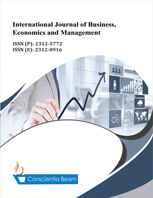The Effects of Changes in Accounting Standards on Value Relevance of Financial Statement Information of Malaysia and Nigeria Banks
DOI:
https://doi.org/10.18488/journal.62/2015.2.5/68.5.135.156Abstract
Dearth of studies on the association between IFRS and value relevance of financial statement information in emerging economies and the continuous exclusion of financial institutions from samples of prior studies motivated this study to acquire the banking sector of two emerging countries – Malaysia and Nigeria in order to investigate whether changes in Malaysia and Nigeria accounting standards affects value relevance of financial statement information. Hence, this study used a sample of 21 banks representing 8 Malaysian banks and 13 Nigerian banks for a study period of 4 years (2009-2012). This study used a modified price and return models to investigate value relevance of financial statement information of Malaysia and Nigeria banks for an equal pre and post IFRS/MFRS adoption periods. The study discovered that MFRS impact more significantly and positively on the value relevance of financial statement information of Malaysia banks than the previous FRS. However the different models evidenced different results for the Nigeria banks. Particularly, while some measurements of the price model demonstrated that Nigeria banks post IFRS adoption financial statement information is associated with high value relevance, other price model statistics proved directly opposite. The return model total indicators also evidenced that financial statement information value relevance of Nigeria banks got worsened post IFRS adoption. Overall this study concludes that IFRS-based standard is fundamental to producing and publishing high value relevant accounting information. Hence, this study recommends that globally, IFRS should be adopted as the standard for the preparation and reporting of financial statements. Nigeria banks should borrow leaf from the efficient and effective institutional regulatory framework and good corporate governance practices of Malaysia banks.

